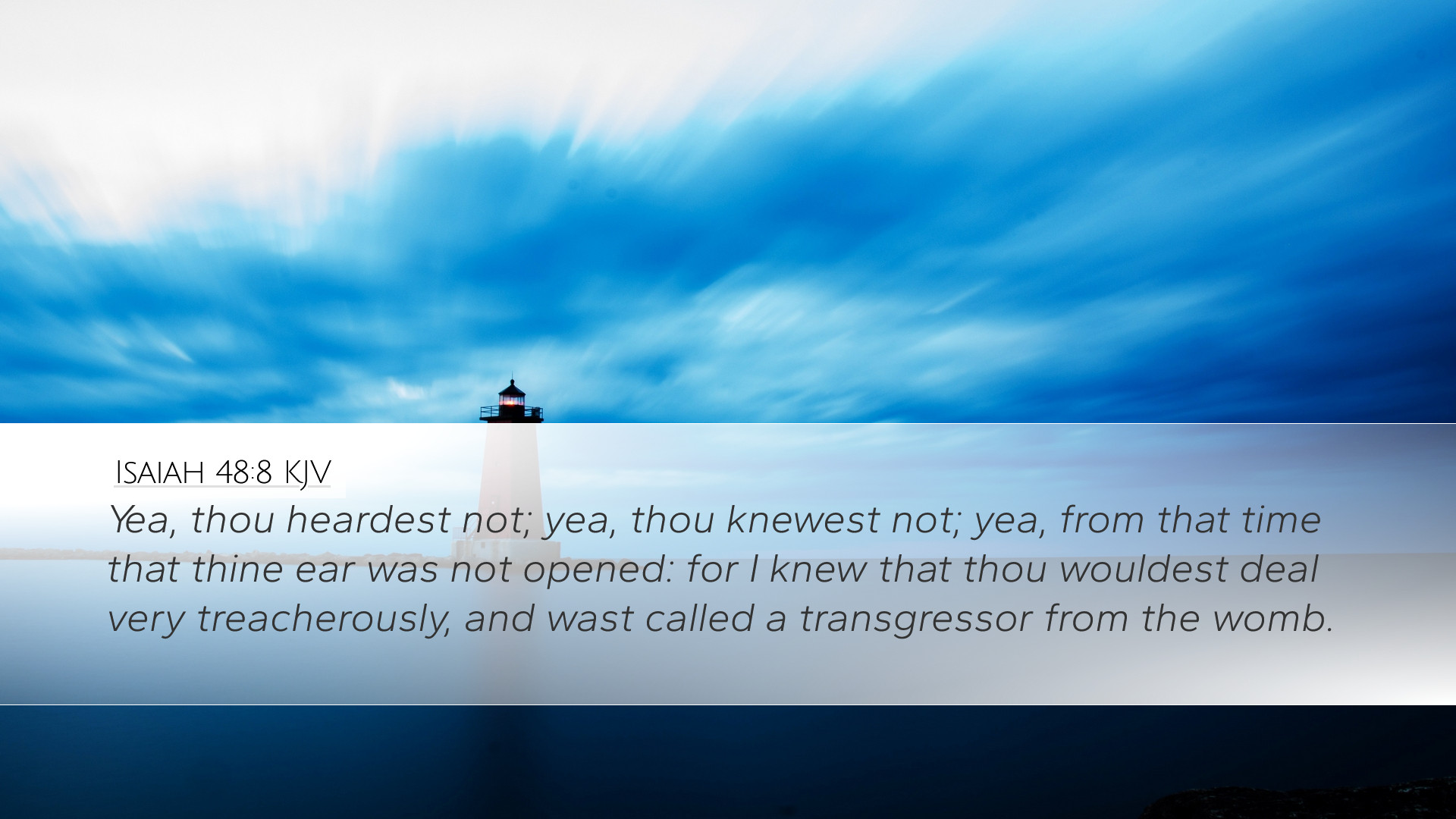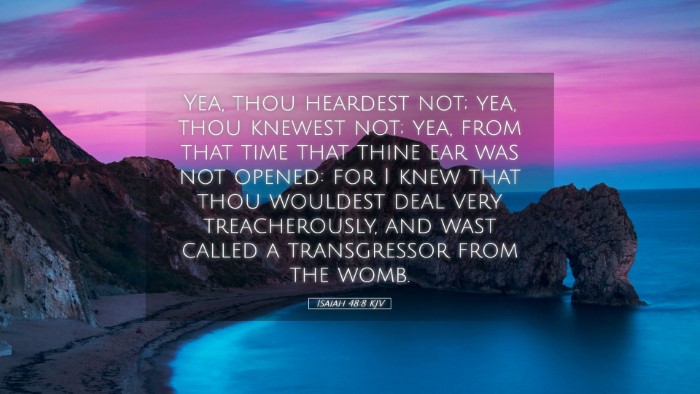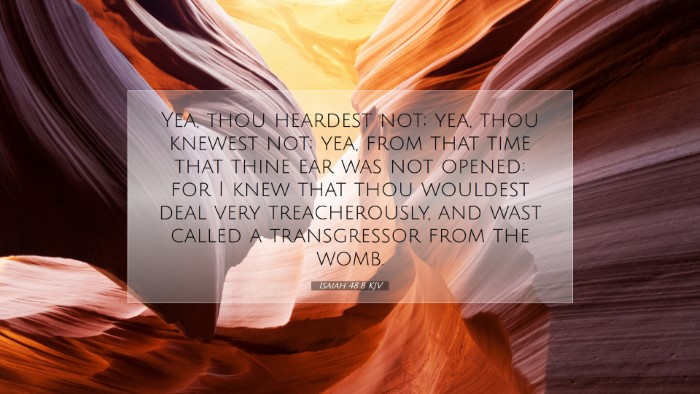Commentary on Isaiah 48:8
Isaiah 48:8 states: "Yea, thou heardest not; yea, thou knewest not; yea, from that time that thine ear was not opened: for I knew that thou wouldest deal very treacherously, and wast called a transgressor from the womb."
Introduction
This verse serves as a profound reflection on the spiritual state of Israel, revealing their disobedience and lack of understanding regarding God's continuous revelations and guidance. It highlights God’s foreknowledge of their rebellion and emphasizes the importance of divine intervention in the hearts of His people.
Exegesis of the Verse
The language employed in Isaiah 48:8 indicates a deep sense of lamentation over Israel's spiritual blindness. The repetition of “yea” signifies a strong affirmation of the state of ignorance among the people.
Contextual Background
The book of Isaiah was written during a time of great tumult for the people of Israel, challenging both their national identity and their covenant relationship with God. Consequently, understanding the historical backdrop provides critical insight into Isaiah's prophetic message.
Key Themes and Observations
- Spiritual Ignorance: The verses express the reality that the people were oblivious to God’s will and His past mercies.
- Foreknowledge of God: God expresses His foreknowledge of their treachery, presenting a divine perspective on their behavior.
- Nature of Sin: The phrase “called a transgressor from the womb” implies that sin is intrinsic and highlights the fallen state of humanity.
Insights from Public Domain Commentaries
Matthew Henry's Commentary
Henry observes that this verse emphasizes God’s awareness of His people’s moral decay. He notes that their unwillingness to listen has led them to a state of ignorance. This commentary underlines the serious charge of treachery against God, suggesting that unfaithfulness was not merely habitual but rooted deeply in their nature from birth.
Albert Barnes' Notes
Barnes focuses on the idea of moral responsibility, stressing that despite God’s clear communication, the people have persistently refused to heed His warnings. He elaborates on the concept of “not having heard” as a willful choice to ignore divine instruction, which consequently brings about judgment. Additionally, Barnes stresses that this ignorance does not absolve them from accountability.
Adam Clarke's Commentary
Clarke provides an in-depth analysis of the terms “heardest” and “knewest,” attributing the failure to understand God’s proclamations to a hardened heart. He emphasizes that God's judgments are based on the knowledge He possesses of human hearts. Clarke also highlights that the phrase about being “called a transgressor from the womb” reflects on the inherent sinful nature of mankind, which necessitates divine grace for restoration.
Theological Implications
The theological implications of Isaiah 48:8 are multifaceted. They address the nature of sin, the necessity of listening to God's word, and the reality of human depravity. For pastors and theologians, this verse serves as a reminder of the importance of both preaching and teaching God’s truth actively and compassionately.
Human Responsibility
The assertion that the Israelites did not hear or know reflects the redemptive necessity for believers today to open their ears and hearts to God’s word. The call is not merely about knowledge but embracing a living relationship with God that recognizes human failings and seeks His grace.
Divine Sovereignty and Grace
This verse beautifully balances God's sovereignty with human depravity, allowing for a rich dialogue about grace. Understanding that God knows the heart and still desires the redemption of His people reveals a depth of love that is essential to Christian faith.
Conclusion
Isaiah 48:8 serves as a poignant reminder of the importance of spiritual vigilance and the dire consequences of turning away from God. It challenges the reader to examine their own walk with God and encourages a sincere effort to engage with His word. The combination of insights from Matthew Henry, Albert Barnes, and Adam Clarke enriches the understanding of this verse, providing a pathway for deeper reflection and application. As believers, may we strive to heed the warning of our transgressions and open our ears to the guiding voice of our Lord.


